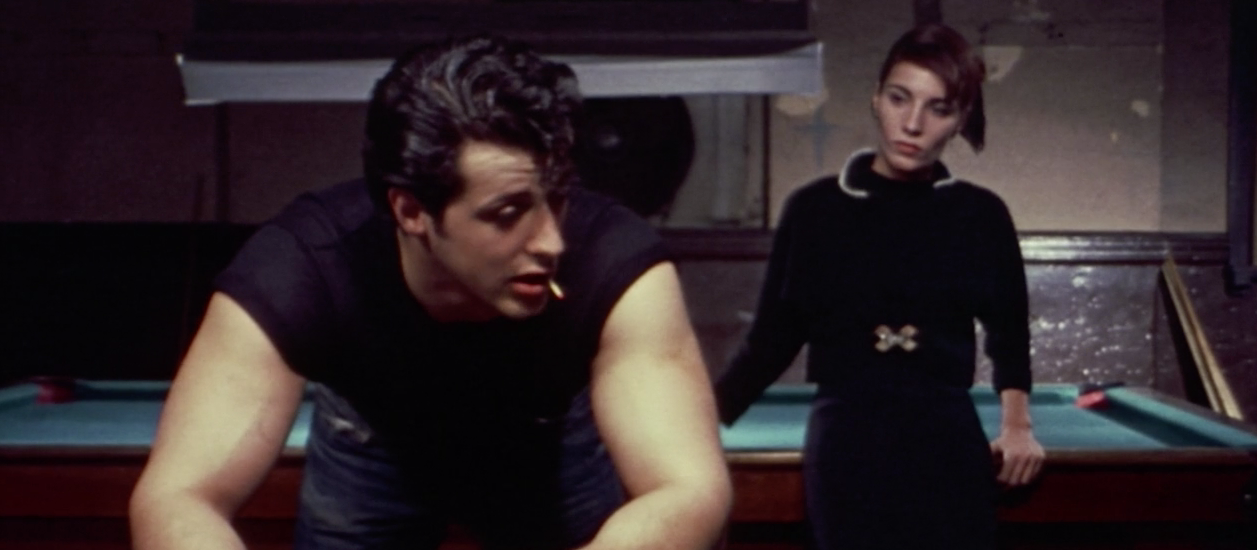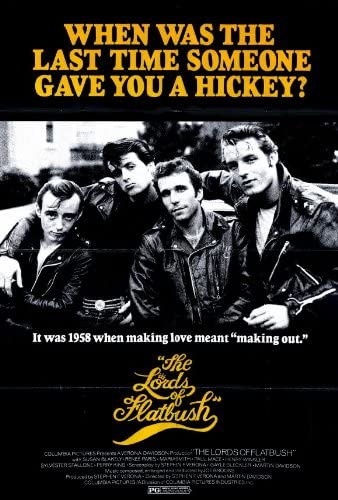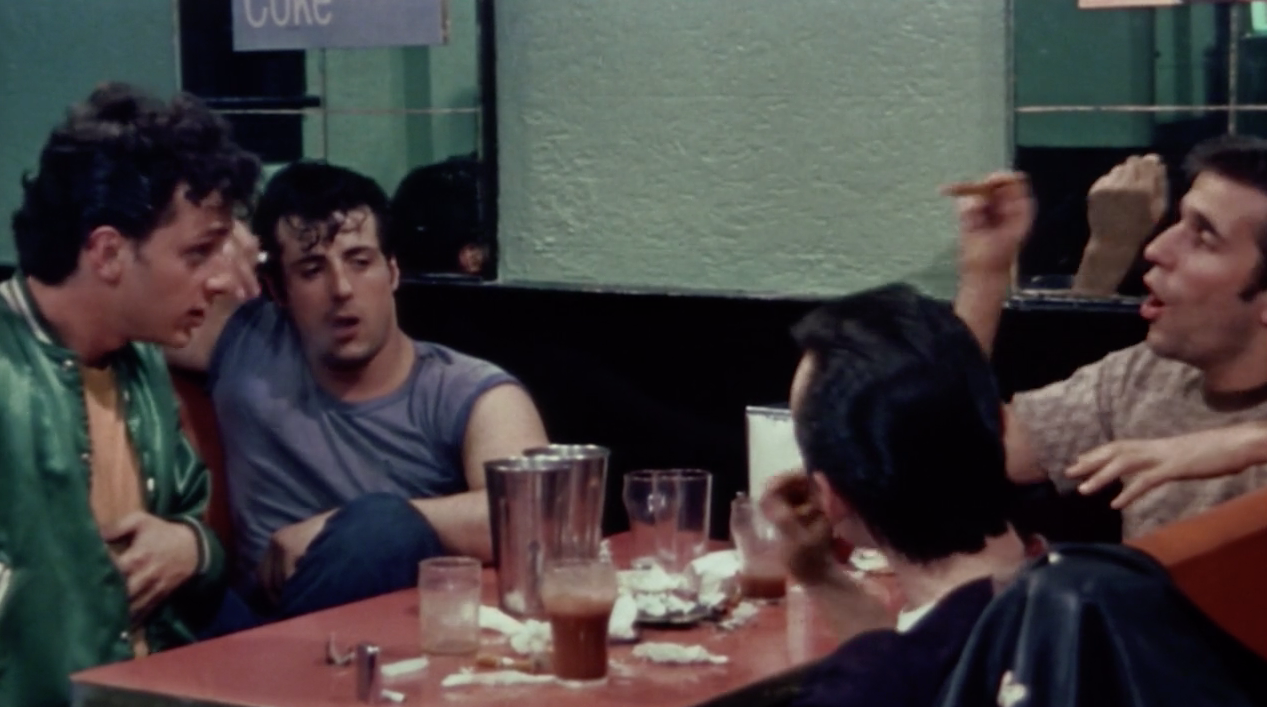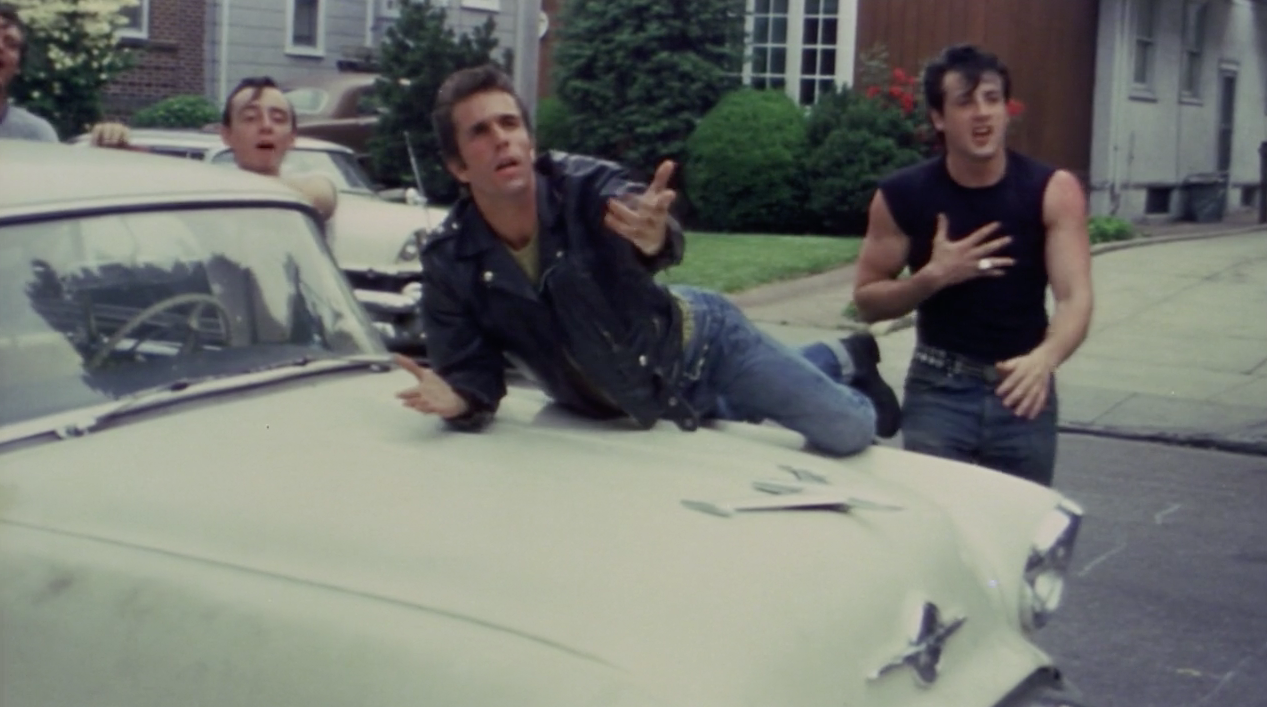

“I figure it this way. The more maps you read the more you know about where you wanna go.”
It would be easy to take a cursory glance at the long career of Sylvester Stallone and surmise that he’s nothing more than a macho man, an icon of bravura and muscle. He’s portrayed two of Hollywood’s most masculine characters (need I even type out “Rocky” and “Rambo,” or do the associations come automatically when you read Sly’s name?) across something like a dozen films—not to mention the countless action thrillers that essentially sold themselves on his image. But that reputation is simply a result of the characters that he seems to have been born to portray. The six packs and veiny biceps and machine guns and explosions and blood and sweat and the trademark slur tend to obscure his brilliance as both an actor and a writer. Several years before he was launched into superstardom by writing the screenplay and portraying the titular underdog boxer in Rocky, he was a struggling young actor sleeping in the Port Authority Bus Terminal and taking $200 paydays for softcore pornos. While I wouldn’t argue against the success of Rocky, I would posit that Stallone’s role in The Lords of Flatbush two years prior was his first great performance.
Stallone is Stanley Rosiello, the ringleader of a high school gang who call themselves the Lords of Flatbush—hilariously misspelled “Lord’s” in the embroidery on their matching leather jackets. The other members of the Lords include Chico (Perry King), Butchey (Henry Winkler), and Wimpy (Paul Mace). They spend their days chasing girls, shooting pool, incompetently stealing cars, and drinking egg creams at the local malt shop. They like to talk about knocking heads together but the only time they engage in fisticuffs they prove inept at inflicting real harm. But as the halcyon days of senior year come to a close these angsty teens are forced to stare down the empty futures that await them. Surely the drive-in romances, latchkey mischief and motorcycle joyrides must come to an end at some point. Being a bruiser is a young man’s game—will Stanley be content to roughhouse losers and cheat at billiards for the rest of life? Two things shake up the carefree lives of our charming protagonists. First, Chico falls off a cliff for the new girl at school (Susan Blakely), and Stanley’s future is thrown into flux by news of his girlfriend Frannie’s (Maria Smith) pregnancy. It’s the latter story that provides the film with emotional resonance.

Rose-tinted ‘50s nostalgia was ripe for the harvesting in the 1970s. Analysis of this trend suggests the obvious culprit is George Lucas’s American Graffiti. Though technically set in the early 1960s, it set the template for the ‘50s throwback—innocuous rascals, naive first love, greasy food, doo-wop music, leather jackets, pompadours, flashy cars. These revisionist depictions of tranquil city streets and harmless rebels probably don’t convey the bona fide truth (hint: people stuck each other with switchblades even in the golden era of the 1950s), but they created a popular fad, evidenced by the success of films like Grease and The Wanderers. These films created a charming old-time magic that served as a balm for those uncertain about the social changes and endless wars they were living through. Many of these films have been long forgotten, but the sitcom Happy Days still has a cultural foothold in the iconic Arthur Herbert Fonzarelli AKA The Fonz—the epitome of cool. Although it is untrue that Winkler’s portrayal of Butchey helped him land the role of Fonzie (Lords had wrapped production but was not yet in its finished form at the time of his audition), his time spent rubbing shoulders with Stallone was formative, to wit: he has claimed that he formed the character by regularly asking himself “What would Sly do here?”
And what doesn’t Sly do here? He’s a restive craftsman, always fidgeting around and subtly drawing attention to himself. He’s constantly in motion—cracking his knuckles, stretching his neck, shrugging his shoulders, gnawing on a toothpick. There’s a magnificent scene where the Lords sit in the all-night malt bar and try to sing like a barbershop quartet, Stallone visibly adjusting his timing and pitch to play off the others’ and bemusedly offering his assessment of their performance with a so-so gesture. “It ain’t exactly Ted Mack,” he says. The most poignant and mesmerizing moment is when Frannie enters the pool hall and demands that Stanley propose to her because he got her pregnant. He doesn’t believe her at first. He cracks jokes, plays with a cue ball, lights a cigarette and smokes it while still munching on his toothpick. But as she describes her vision of their shared future, he seems to visibly resign himself to the end of his wayward adolescence and shoulders the burden of adulthood. It’s impossible to look away from his magnetic performance, whether he’s escalating a playful punching match with Chico, threatening the jeweler who convinced his new fiancée that she needed a $1600 engagement ring (plug that into an inflation calculator), or giving a wild monologue about pigeons and maps and Tokyo.

These impossibly good scenes are abundant and in hindsight it is clear that Stallone’s contributions to the script greatly enhanced his character. While this makes the film a perfect vehicle for his talents, it severely diminishes his co-stars. Even Winkler, on the verge of immense popularity himself, is only given a few moments in the spotlight. An interesting footnote is that Richard Gere was originally given the part of Chico but clashed with Stallone and was fired. Stallone’s version of the story suggests that Gere wouldn’t relax on set and was disrespectful, but it may have been the case that he forcibly cleared the stage of anyone who would detract attention from him. Though it wasn’t meant to be, I would have loved to see those two young actors chewing up scenery and improvising dialogue together.
Producer and co-director (along with Martin Davidson) Stephen Verona spent a number of years putting Lords of Flatbush together. Inspired by the free-spirited arthouse films coming out of Europe, he bummed money off of friends and family, cobbled together a shoestring budget and amateur cast and crew, and shot the whole thing in a few weeks in 1972. It came out a year after American Graffiti but it’s clearly not a knockoff. While thematically linked to the 1950s nostalgia fad, its backstory, loose narrative, murky characterizations and spirited improv align it more with the fiercely independent work of John Cassavetes than any Hollywood-backed project. The Lords of Flatbush is hard to pigeonhole, but once it grabs ahold of you it doesn’t let go. Now that it works as a throwback to two different eras it’s hard to ignore its rugged magic.
Sources:
Ramano, Nick. “Henry Winkler on how Sylvester Stallone inspired the Fonz. EW. 29 April 2019.